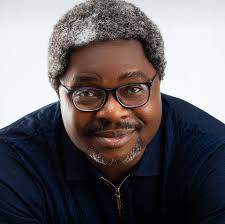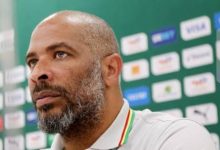Peter Obi’s Desperate Chase for Relevance: The Politics of Empty Outrage
Peter Obi’s Desperate Chase for Relevance: The Politics of Empty Outrage

By Akin Alade | Abuja
Once seen as the face of a new political awakening, Mr Peter Obi, the 2023 presidential candidate of the Labour Party, appears to be losing grip on the very ideals that once endeared him to millions. His recent public spat with the camp of the Federal Capital Territory (FCT) Minister, Nyesom Wike, has thrown up questions about his focus, judgment, and political future.
It all began when Obi took to social media to lament the “deplorable state” of some public schools in Abuja, describing them as “a national embarrassment and a sign of failed leadership.” But his attempt to score moral points quickly backfired, with Wike’s media team accusing him of grandstanding on issues beyond his lane.
“A Political Wanderer Looking for Headlines”
Leading the charge was Lere Olayinka, Senior Special Assistant on Public Communication and Social Media to the FCT Minister. In a strongly worded response on Thursday, Olayinka dismissed Obi as a politician “without a clear sense of direction or a credible political base.”
> “It is funny that someone who should be bothered that he does not have a platform to contest the 2027 election has turned himself into a political wanderer,” Olayinka said.
“He moves from one controversy to another, desperate to stay in the headlines. That is not leadership — that is attention-seeking.”
Olayinka went further, describing Obi as an “Internally Displaced Politician” (IDP) — a man without political shelter or structure.
> “Let’s be honest, will any serious political party give Peter Obi a presidential ticket simply because he keeps repeating the one-shoe, one-wristwatch story? Nigerians are tired of motivational speeches; they want governance that works,” he added.
Wike’s Camp Fires Back with Facts
Backing his boss’s record, Olayinka pointed to ongoing efforts to improve infrastructure in the capital.
> “Under Wike, the FCT is witnessing real and verifiable development. Across the six Area Councils, 73 schools are currently under renovation and 21 have already been completed. That is leadership you can measure — not the social media type that thrives on emotional soundbites,” he stated.
He accused Obi of hypocrisy, claiming the former Anambra governor had a poor record on education despite his self-styled image as a reformer.
> “In Anambra, he hoarded state funds while children studied under leaking roofs. He saved billions that never translated into visible development. Governance is not about keeping money in the bank while citizens suffer,” Olayinka said.
Observers Question Obi’s Strategy
Political observers say Obi’s latest outburst may have done little to boost his image. Dr. Hassan Suleiman, a political analyst at the University of Abuja, described Obi’s comment as “a classic example of misplaced activism.”
> “Peter Obi seems to have developed a pattern — reacting to every national issue in a bid to stay visible,” Dr. Suleiman observed.
“But that approach is dangerous. He risks appearing more like a social commentator than a serious political leader preparing for 2027. Nigerians can sense desperation, and it never plays well in politics.”
Another commentator, Mabel Nwosu, a public affairs analyst, said Obi’s style may have worked in 2023, but times have changed.
> “People wanted a new face then; now they want tangible political groundwork. Obi is still operating like an outsider when he should be consolidating like a contender,” she said.
“You can’t keep attacking from the sidelines when your own party is in disarray.”
Labour Party’s Leadership Woes
Indeed, the Labour Party that carried Obi to national fame in 2023 is now riddled with internal crises. Factional disputes over leadership and finances have weakened its structure, while many prominent members have distanced themselves from the former presidential candidate.
> “Obi has not done enough to rebuild his base since the election,” said Chidi Okafor, a former LP youth mobilizer.
“Instead of resolving the leadership crisis or uniting the Obidient movement, he is busy issuing statements on every topic. That’s not strategy — that’s panic.”
Some insiders quietly admit that without a strong platform, Obi’s chances in 2027 appear slim. Several of his allies are reportedly exploring alliances with other parties, leaving him politically isolated.
Wike’s Advantage and Obi’s Dilemma
In contrast, Nyesom Wike continues to assert control in the nation’s capital, executing projects that keep him in the public eye for measurable results. Whether it’s road construction, school renovation, or market redevelopment, Wike’s aggressive administrative style stands in sharp relief to Obi’s reactive posturing.
> “Wike may be controversial,” said Dr. Suleiman, “but at least he’s doing things people can see. Obi’s politics, on the other hand, has become about trending topics rather than tangible accomplishments.”
Politics of Distraction
The unfolding drama between the two men underscores a broader truth — that Nigeria’s opposition landscape is fast losing discipline and direction. For Peter Obi, the question is no longer whether he can win in 2027, but whether he even knows what battles are worth fighting.
> “A leader who doesn’t pick his fights wisely ends up losing all of them,” said Nwosu.
“Obi should focus on fixing his political house before throwing stones at someone else’s.”
As 2027 approaches, the road ahead for the former Anambra governor looks increasingly uncertain. While his words still echo among a loyal few, the larger electorate appears to be moving on — craving substance over sentiment.
For now, Peter Obi’s political journey seems caught between nostalgia and noise — a movement without motion, and a leader without a map.







